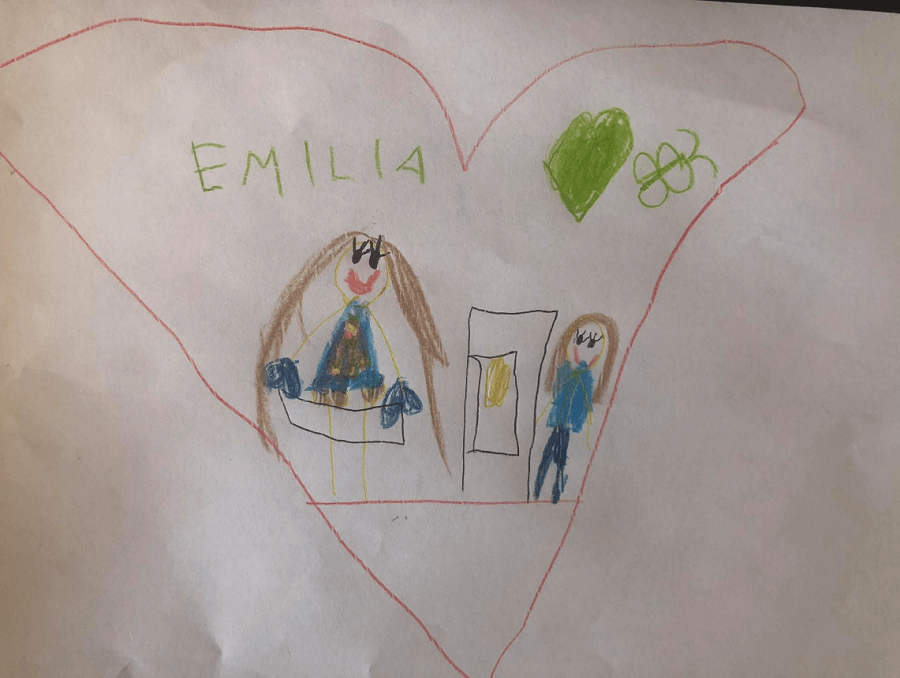Coronavirus: Protective Equipment Arrives in Croatia from China
As Poslovni Dnevnik writes on the 12th of April, 2020, almost 60 tonnes of protective equipment has arrived in Croatia by direct flight from China to help the country fight the coronavirus pandemic. Everything from masks, face shields, goggles and gloves to contactless thermometers, has landed in the country, Vecernji list reports.
Croatia has already procured 12.5 tonnes of equipment from China, but the landing of a Boeing 747 cargo plane with 600 cubic metres of cargo at Zagreb Airport marks the beginning of the establishment of an air bridge between the two countries, agreed during Prime Minister Andrej Plenkovic's last telephone conversation with his Chinese counterpart, Li Keqiang.
Thus, direct flights from Shanghai to Zagreb will maintain a continuous supply chain for the health care system and other services. The Civil Protection Headquarters who are responsible for coordinating the fight against coronavirus, has been put in charge of distributing the delivered equipment.
The equipment purchased was also shipped with a donation from the Chinese Government. The direct acquisition, which is the result of a political summit agreement, has been made by two large state-owned companies in the country, Meheco and Sinopharm, and this marks an important political consensus at a time when protective equipment has become a valuable commodity.
For added security, Croatia also hired an aircraft from SF Cargo Airlines for the direct delivery of the protective equipment from Shanghai to Zagreb.
The purchased equipment is all fully certified. As of April the 1st, 2020, a new regulation on the export of medical equipment has been in force in China, under which goods cannot be exported unless they are properly certified and explicitly accepted by the consignee. Therefore, the boarding of the goods was monitored and the freight forwarder regularly sent photographs of the goods.
The Office of the President is directly involved in the procurement and coordinated the work of Beijing's institutions, ministries and embassies, which assisted in the field in connecting with companies and freight forwarders, collecting airfares and handling things on the Chinese market.
Make sure to follow our dedicated coronavirus section for all you need to know about the pandemic in relation to Croatia.
Stunning Drone Footage as Jelsa Za Krizen Procession Concludes on Hvar
April 12, 2020 - A spectacular aerial view of the final moments of Za Krizen 2020 in Jelsa on the island of Hvar.
It has been quite an Easter weekend here in Jelsa with all the controversy of the Za Krizen procession taking place in the corona era.
Lots of opinions on both sides as to whether or not the procession - which has taken place every year for 500 years - should go ahead in the current situation.
Permission was given at Prime Ministerial level, and each of the six processions in Jelsa, Pitve, Vrisnik, Svirce, Vrbanj and Vrboska were restricted to 15 people, plus five additional singers, rather than the hundreds or thousands in normal years.
Due to the travel restrictions, not only were there no pilgrims, but also very few journalists. As I found myself as one of only four of them, I felt an obligation to take as much footage as I could, which was a good decision in retrospect, as what I physically saw on the ground was MUCH different to what was reported in the Croatian media second-hand. You can read the photo and video report of how the procession was controlled by the Hvar police and local authorities here. (There is also a Croatian language version, as well as a report on the actual processions through the night, and finally an edited tribute to each of the six cross bearers).
MyHvar was also out, which resulted in this beautiful aerial view of Jelsa at 06:00 on Good Friday morning, as the Jelsa procession returned home after a long night.
What is interesting to notice for those who outraged at the supposed mass social distancing violations (yes, there were some, but I looked at this topic at length in the photo and video report on the link above), not only was nobody following the procession (there were a couple of thousand people last year), but note how far apart the local people are on the left as the procession goes by, as well as how empty the main square was. A really good video which will be appreciated by many.
And enjoy the video, beautifully shot. Ironically, while this year's Za Krizen procession was attended by so few, technology in the form of the webcams from the church and the pjaca, the videos I uploaded through the night and the more polished ones edited by Miranda Milicic Bradbury the following day (see Jelsa arrival and subsequent departure to St John's Square in her video below) ensured that perhaps more people than ever took place in this iconic procession.
To learn more about the Za Krizen procession, check out the dedicated link.
Foreigners Self-Isolating in Croatia: Do You Feel Safer? Natalia from Poland in Ogulin
April 12, 2020 - Do foreigners in Croatia feel more or less safe sitting out COVID-19 here than in their home country, and what are their experiences? A new series on Total Croatia News, with Natalia Zielinska from Poland in Ogulin as the 36th contributor.
Oxford University recently published some research on government responses to coronavirus which showed that Croatia currently has the strictest measures in the world. While inconvenient, this is a good thing in terms of reducing the spread of the virus, and I am certainly not alone in my admiration of the official Croatian handling of this crisis in recent weeks, both in terms of action and communication.
But what do other expats here think? And how does it compare with the response in their home country? Would they rather sit this one out here or there? A new series on TCN, we will be featuring expats from all over the world to see what their views are on life in corona Croatia rather than back home. So far we have heard from expats in Croatia from Romania, USA, Ireland, UK, Mexico, Argentina, Spain, Singapore, Holland, Canada, India, Hong Kong, Venezuela, Latvia, China, Honduras, Hungary, Moldova, South Korea, Japan, the Philippines and Germany. Next up, Natalia Zielinska from Poland in Ogullin.
If you would like to contribute to this series, full details are below this interview.
Hello, I’m Natalia. I have lived in Croatia permanently since 2013, I run a company here that deals with consulting, preparing and implementing EU projects. I run several projects aimed at developing entrepreneurship and entrepreneurial skills in Croatia. Unlike most people who are in this business, I chose Ogulin, a small mountainous town right between Zagreb and Rijeka, for my life destination.
Firstly, how are you? Are you alone/with someone? Tell us a little about your situation and sanity levels.
I'm fine now. I'm not alone, we have a family and our little children here, so I definitely don't miss being around people. Quite the opposite. At the beginning, I was quite angry, disappointed because things got out of control, and I followed all the news in Poland and Croatia with tension. The worst thing was the ignorance, the virus started to spread, we didn't know if it was really a threat or some worse form of the common flu. I’ve already come to terms with the situation, but I’m still abnormally concerned about my family in Poland.
What struck me most was the closure of the borders, Poland was the first to introduce these measures.
Then I realised that if something bad happens to my mum who is alone, then realistically I can't even get to her, this feeling of powerlessness is terrible. But now that the situation is stabilising and we know, roughly, what’s going on around us.
So, in my private life, I’m now stable, I’m even enjoying this new rhythm where I’m constantly surrounded by children.
I went through the same stages in business - disappointment, anger and slowly getting used to the situation. Now, I’m continuing doing business peacefully, but I’m also increasingly trying to help and support other entrepreneurs who are in a bad situation.
In addition, I’m adapting to this new situation, developing an online business, focusing on our long-term partners, our clients. We’re building a relationship, we’re no longer interested in short-term earnings. Currently, we’re spending more time and resources on volunteer work, counselling and support than we are on commercial activities, which may not be good business sense, but these times have shown that we are dependent on each other.
What do you think about the economic measures the government is taking, are they helping your business?
The first measures were not sufficient, but all thanks to the Voice of the Entrepreneur (movement) and other branch organisations, things were organised in time to find better conditions.
For now, these existing measures are more than good, I personally just care about the background, that is, how the state will be able to finance these measures, because we’re aware of the inefficiency of the public sector.
Each day, we have 20-30 inquiries regarding government measures, grants and loans.
Each day we submit 10 applications for working capital loans.
I can say that the crisis that has emerged will further purify this sector, in the way that there are entrepreneurs who are struggling for their businesses and employees, and we have some who are immediately retiring to protect their interests. I think that in a few months, we will return to a full and healthy environment, a digitised public sector, hopefully deprived of parasites, but on top of that, better quality, more resourceful and loyal entrepreneurs will somehow be winners in the whole situation.
A decision has been made to limit public procurement, which is explicitly detrimental to the economy, but I hope this decision will not apply to EU projects, which are now the main wheel in re-starting the economy.
When did you realise that corona was going to be a big issue?
When they closed the borders, when for the first time someone restricted me, a child of Solidarity, the EU and the free market, the elemental freedom of movement. It's kind of a slight shock to us, ‘almost’ millennials.
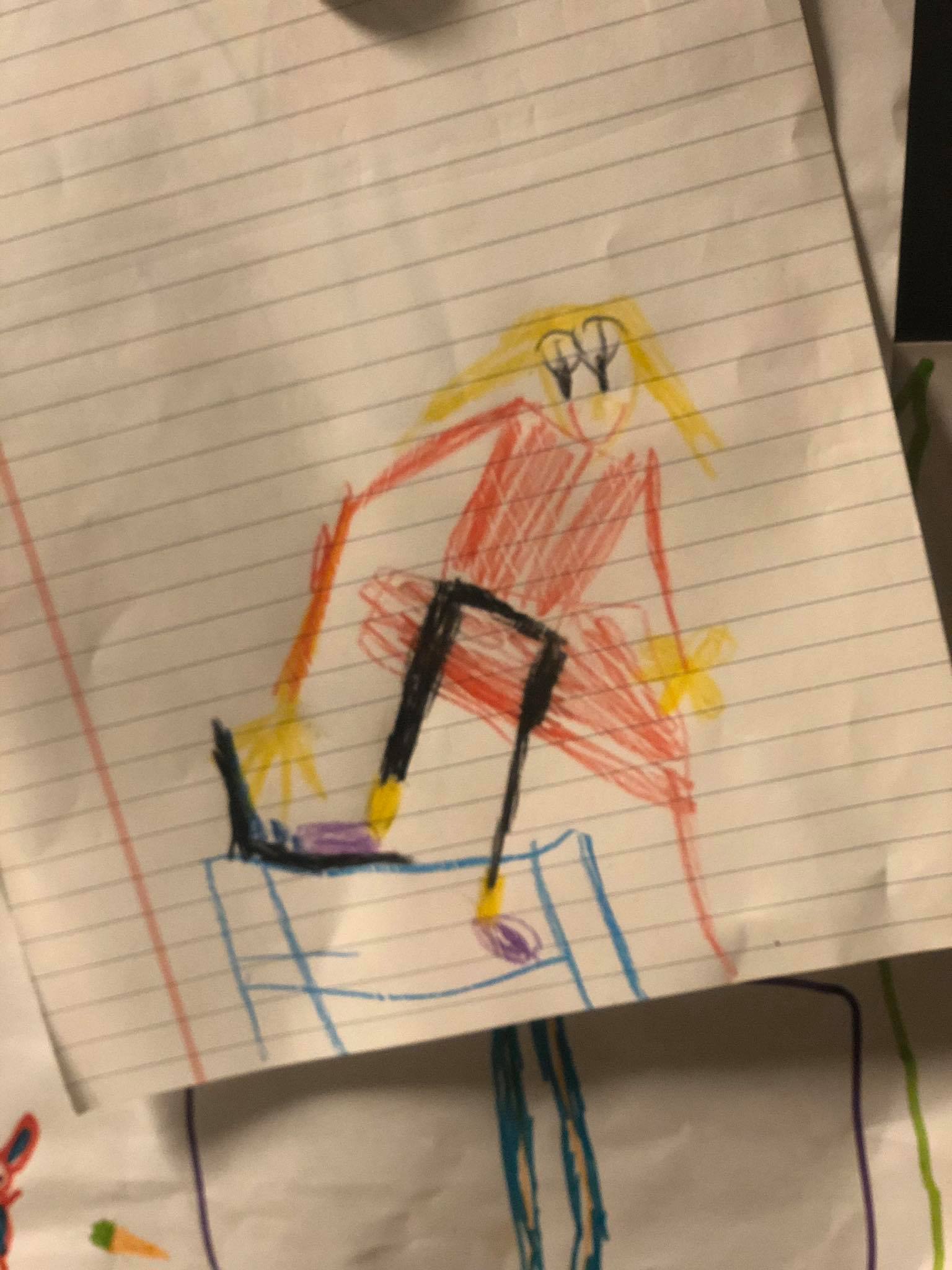
What is your impression of the way Croatia is dealing with the crisis? How safe do you feel?
The Croatian Government has put adequate measures in place in time. Communication is great, the organisation is too, the other day, the headquarters came to our apartment because we have Zagreb license plates [to check we were meant to be where we are]. Everyone really is doing their job. What concerns me are irresponsible citizens, on the one hand, they complain about the restriction of liberties, and on the other, they don’t know how to respect the elementary rules of conduct. That way, we keep going around in circles.
Now compare that to your home country and how they are handling it. What is Croatia doing better/worse?
Croatia definitely has better measures for entrepreneurs, for example, while for example, the Poles have better measures for the cultural sector, those who are self-employed and micro-entrepreneurs.
The Poles also introduced measures to further accelerate the implementation of investments such as exemptions from public procurement obligations for certain funds. A page has been created with all the measures and direct links for application, in Croatia, we have some announcements and additions to them every day. There is no single channel of communication.
In Poland, unfortunately, the ruling forces forcing the presidential elections in May are trying to take advantage of the situation. In addition, a number of legal measures are introduced, using a situation when everyone's attention is focused on the fight against COVID-19.
In Croatia, politicians behave correctly, I didn’t see anyone trying to score political points at the expense of the situation, finally, experts and those in the know joined the debate and subsequently organised the private sector.
In Poland, these initiatives are missing.
What's the one thing you wish you had taken with you into self-isolation?
My phone. To be able to hear from everyone and follow everything that happens.
What is one thing you have learned about yourself, and one thing you have learned about others during this crisis?
I’ve realised how much I’m missing out on the development of my children, since I’ve been working from home, watching them all the time, and only now am I understanding some of their behaviours, their rules. We have a much better relationship.
I always had it on my conscience that we had a bad business model because people, and their problems, were always my focus. Then many people assured me that the purpose of a business was to make a profit. When that profit disappears in one day, or one month, the people remain - business and life partners you can rely on. I think the crisis has convinced me only of the correctness of my views.
And secondly, I’ve not learned anything new, as there are always individuals who are struggling, they find solutions and they are great and inspirational people, and there is always a crowd that just criticises and senselessly discusses things.
These situations better highlight both categories of people, so it's a great opportunity to verify your friends and those on your list of business partners.
Thanks, Natalia. Stay safe and see you on the other side.
TCN is starting a new feature series on foreign experiences of sitting out COVID-19 here in Croatia compared to their home country. If you would like to contribute, the questions are below. Please also include a para about yourself and where you are from, and a link to your website if you would like. Please also send 3-4 photos minimum to This email address is being protected from spambots. You need JavaScript enabled to view it. Subject Corona Foreigner
If you would be interested to record a video version for our partners www.rplus.video please let us know in the email. Thanks and stay safe.
Foreigners Self-Isolating in Croatia: Do You Feel Safer Than in Your Home Country?
Firstly, how are you? Are you alone/with someone? Tell us a little about your situation and sanity levels.
What do you think about the economic measures the government is taking, are they helping your business? (PLEASE IGNORE IF THIS DOES NOT AFFECT YOU)
When did you realise that corona was going to be a big issue?
What is your impression of the way Croatia is dealing with the crisis? How safe do you feel?
Now compare that to your home country and how they are handling it. What is Croatia doing better/worse?
What about official communications from the authorities, compared to your home country?
What's the one thing you wish you had taken with you into self-isolation.
One thing you have learned about yourself, and one thing you have learned about others during this crisis.
TCN has recently become a partner in Robert Tomic Zuber's new R+ video channel, initially telling stories about corona experiences. You can see the first TCN contribution from this morning, my video from Jelsa talking about the realities of running a news portal in the corona era below. If you would like to also submit a video interview, please find Robert's guidelines below
VIDEO RECORDING GUIDE
The video footage should be recorded so that the cell phone is turned horizontally (landscape mode).
There are several rules for television and video news:- length is not a virtue- a picture speaks more than a thousand words
In short, this would mean that your story should not last more than 90 seconds and that everything you say in the report should be shown by video (for example, if you talk about empty streets, we should see those empty streets, etc.).
How to do it with your cell phone? First, use a selfie camera to record yourself telling your story for about a minute and a half. Ideally, it would be taken in the exterior, except in situations where you are reporting on things in the interior (quarantine, hospital, self-isolation, etc.). Also, when shooting, move freely, make sure everything is not static.
After you have recorded your report, you should capture footage that will tell your story with a picture, such as an earlier example with empty streets.
One of the basic rules of TV journalism is that the story is told in the same way as a journalist with his text. Therefore, we ask you for additional effort. Because we work in a very specific situation, sometimes you may not be able to capture footage for each sentence of the report. In this case, record the details on the streets: people walking, the main features of the city where you live, inscriptions on the windows related to the virus, etc.
The same rules apply if you are shooting a story from your apartment, self-isolation, quarantine. We also need you to capture footage that describes your story.
When shooting frames to cover your reports, it is important that you change the angle of the shot (in other words, shoot that empty street from several angles). Also, when shooting a detail, count at least five seconds before removing the camera to another detail.
The material should be about 5 minutes long (90 seconds of your report + frames to cover your story).
After recording everything, send us to Zagreb, preferably via WeTransfer to This email address is being protected from spambots. You need JavaScript enabled to view it.
Wash your hands.
Glas Poduzetnika Survey on Croatian Tourist Season 2020 Status
April 12, 2020 - While nobody now expects a strong Croatian tourism season, what is the actual situation with bookings. Glas Poduzetnik, the Voice of Entrepreneurs association presents its findings.
What can we expect from the tourist season 2020? A question for many in the tourism sector, but also for those who are not directly related to it, given there will be many indirect consequences. Following our survey on the usefulness and expectations that entrepreneurs (especially in the field of tourism) have from tourist boards, we were interested in further exploring this topic. Expectations for the season are undoubtedly poor, and it seems that significant help from the tourist boards is not counted on. We were interested in what is currently happening with tourist accommodation lessors and their bookings? We got the following results:
56% of lessors sustained a considerable drop in reservations or sales of their accommodation capacities. Another 4% of them advised that they had a medium-size decline with the beginning of April. Somewhat reassuringly, about 16%, fortunately, counts only a slight decrease in the number of bookings or sales for their accommodation capacities. Unfortunately, another 21% reported a large number of cancellations for existing reservations or previously sold arrangements. Only slightly less than 3% of participants said that there is no decrease in the number of bookings, or it is minimal.
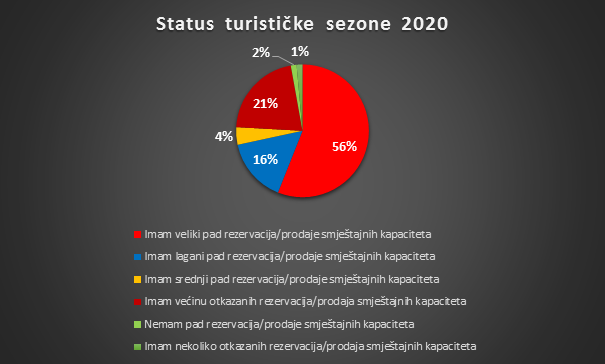
I have a considerable drop in reservations/sales of accommodation capacities
I have a slight decline in reservations/sales of accommodation capacities
I have a medium-size drop in reservations/sales of accommodation capacities
Most of my reservations/sales of accommodation capacities have been canceled
I have no decrease in reservations/sales of accommodation capacities
Some of my reservations/sales of accommodation capacities have been canceled
This is yet another confirmation that we will have a challenging tourist season, and especially for all those categories that will not be able to realize the new income until the season 2021, which is now also difficult to predict. Given the size of this sector, we should certainly think carefully about additional intervention options to avoid domino effect causing even more damage.
You can follow the latest from the Glas Poduzetnika association on Facebook.
Expats in Isolation Top 10 Croatia Experiences: Ionut from Romania in Split
April 12, 2020 - As people look for escape from the mental stress brought on by the corona crisis, a new series on TCN with local expats in isolation, looking back at their top 10 experiences in Croatia so far. We start with Ionut Copoiu from Romania in Split.
I have had a LOT of emails and messages asking if TCN could write about something happier than the constant corona updates. I hear your pain, but with so much (sadly bad) news to report and limited resources due to the crisis, this is not so easy. But then I thought of a nice series which might perhaps pique people's interests, focus on the happy stuff, and even unearth some hidden gems to explore at a later date.
Having done a very successful series with over 30 submissions from expats around the world on their self-isolation experiences in Croatia compared to what is happening in their home country, and then following that with a series on Croats in the diaspora with their corona viewpoint of their country of residence compared to the Homeland, perhaps a happier and more interesting series would be to look at expats here today and their top 10 experiences in Croatia so far.
We start in Split with Ionut Copiou from Romania, who has been here for 5 years now, running his own business making nautical jewellery with his wife, Mirela.
Here is Ionut's top 10. If would like to contribute to this series, contact us on This email address is being protected from spambots. You need JavaScript enabled to view it. Subject Top 10.
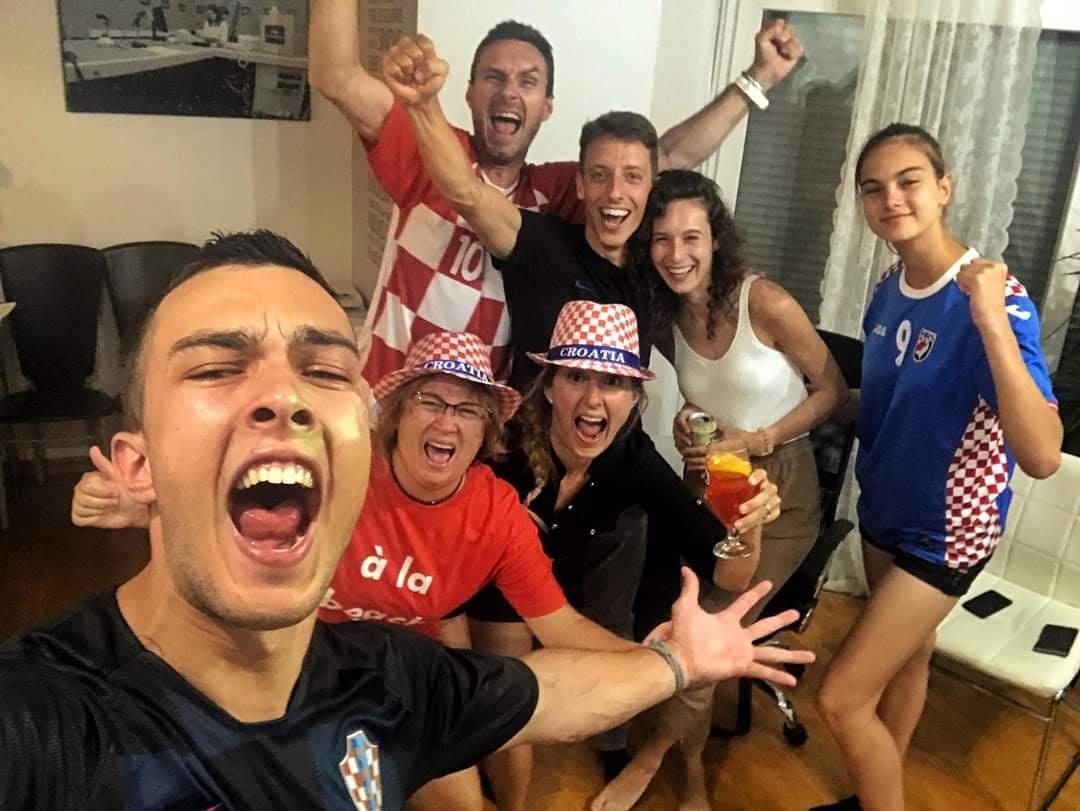
Living in Croatia during the 2018 World Cup is at the top of my list. Watching most of the games in the middle of the town surrounded by hundreds of Croatians and tourists and celebrating after each game in the streets - priceless! The game against England in the semi-final is still giving me goose-bumps.
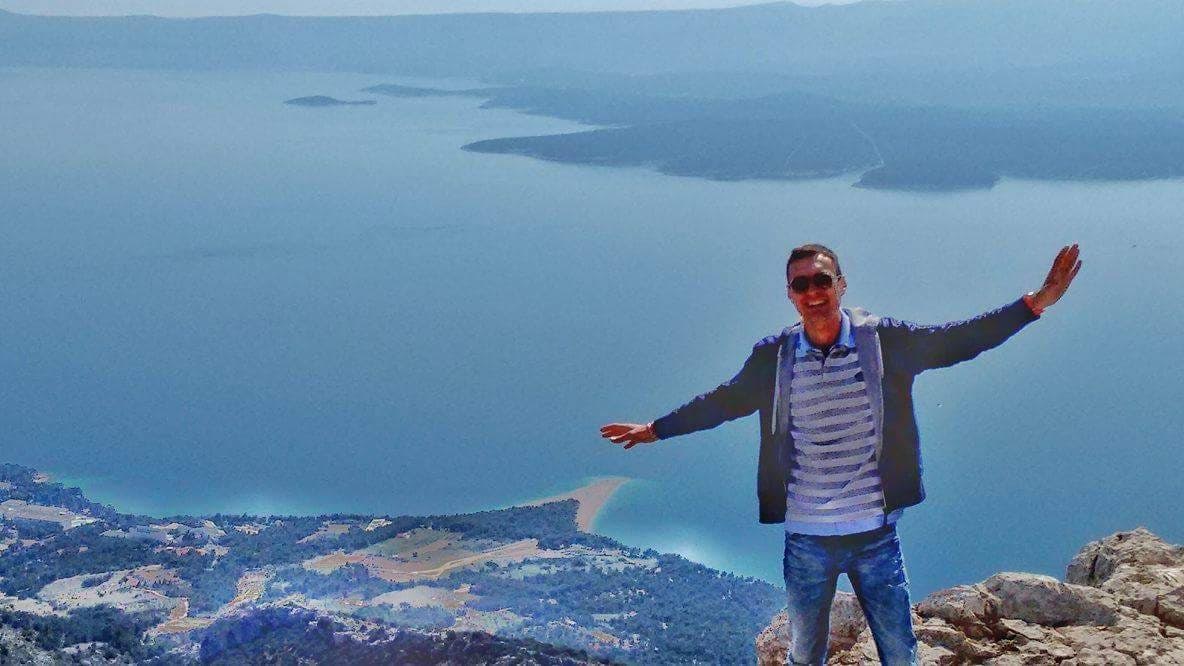
Visiting for the first Vidova Gora viewing point on the island of Brac was a breath-taking experience. The 180 degrees views of the blue waters of the Adriatic Sea and the islands gave me a feeling of being on top of the world.
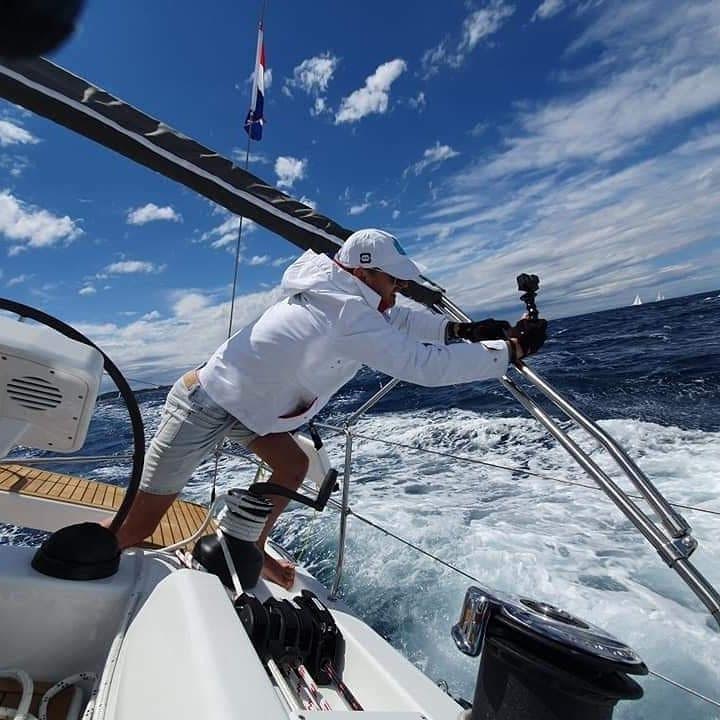
Being able to participate in regattas and experience sailing by competing with others while spending 5 days with good friends on a yacht.
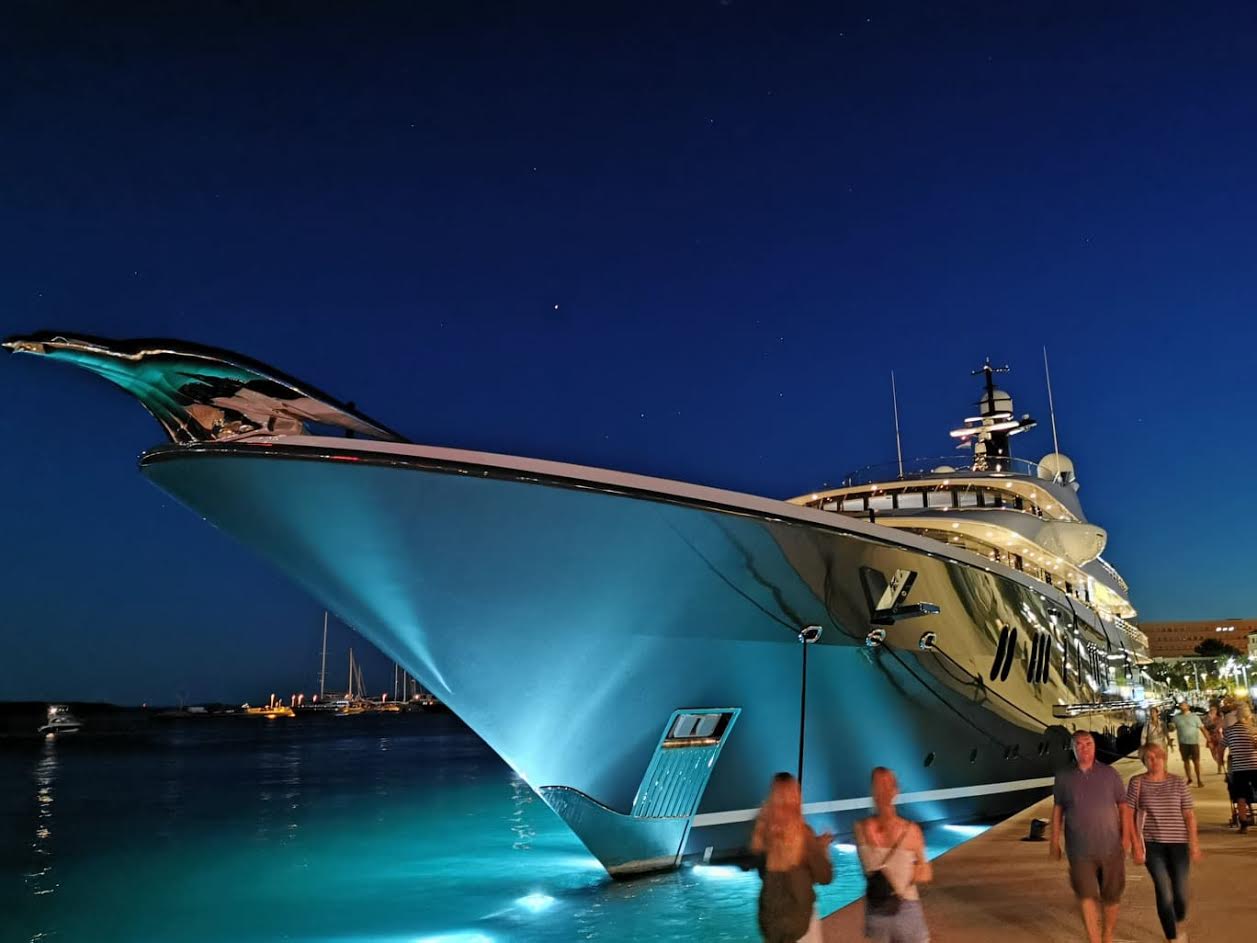
Exploring the west promenade of Split during the season and admiring luxury superyachts while having an ice-cold beer 10 meters away.
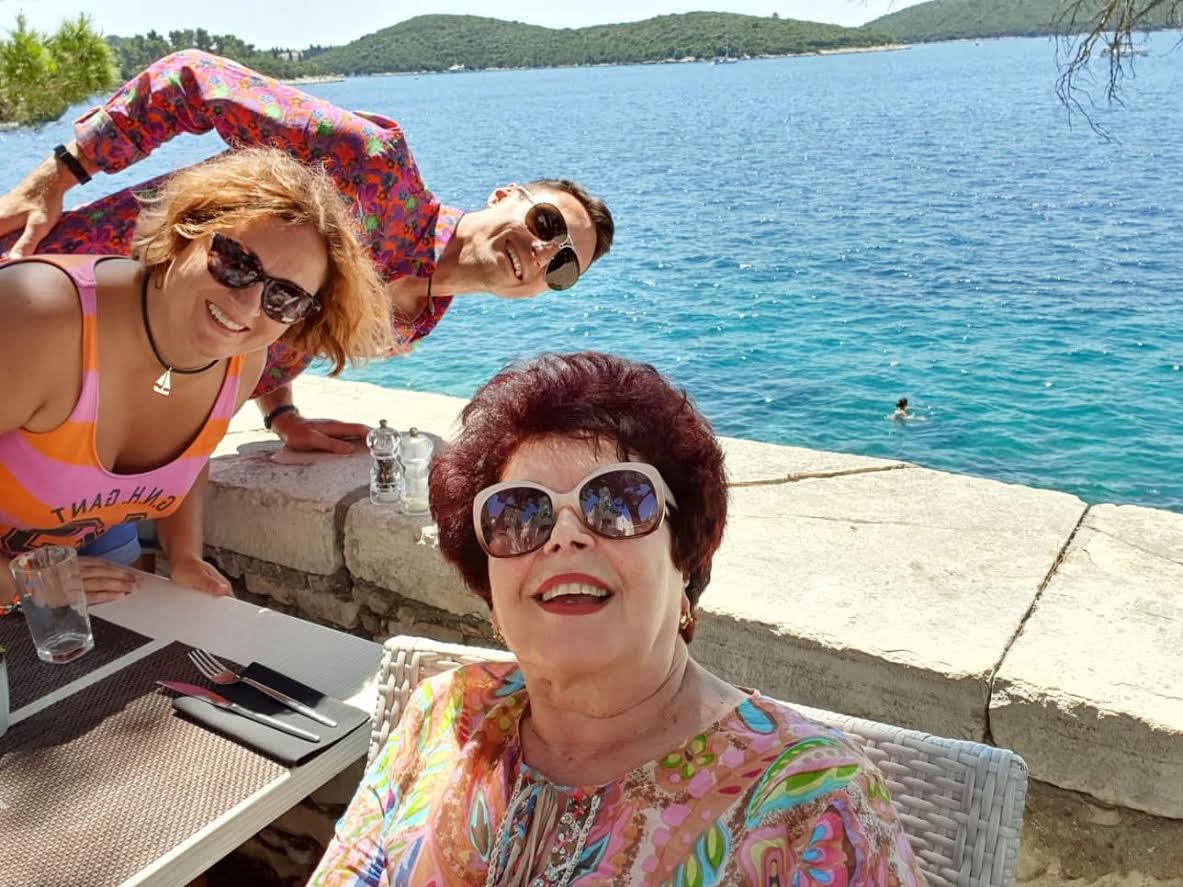
Bringing my parents over every year and build new memories is compensating for the fact that we now live 1500km away.
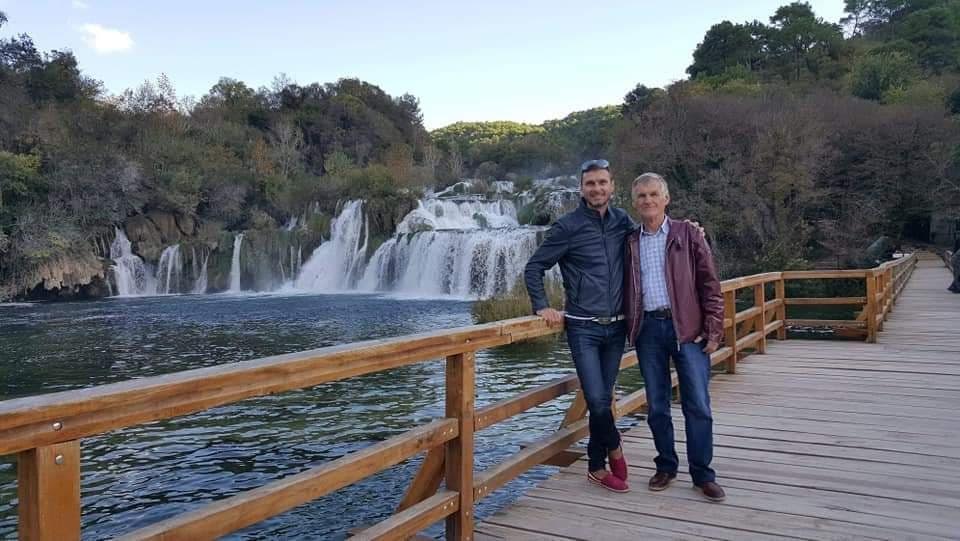
Waking up in the morning and having the possibility to jump on a yacht for a one-day sail and forget about work and current problems.
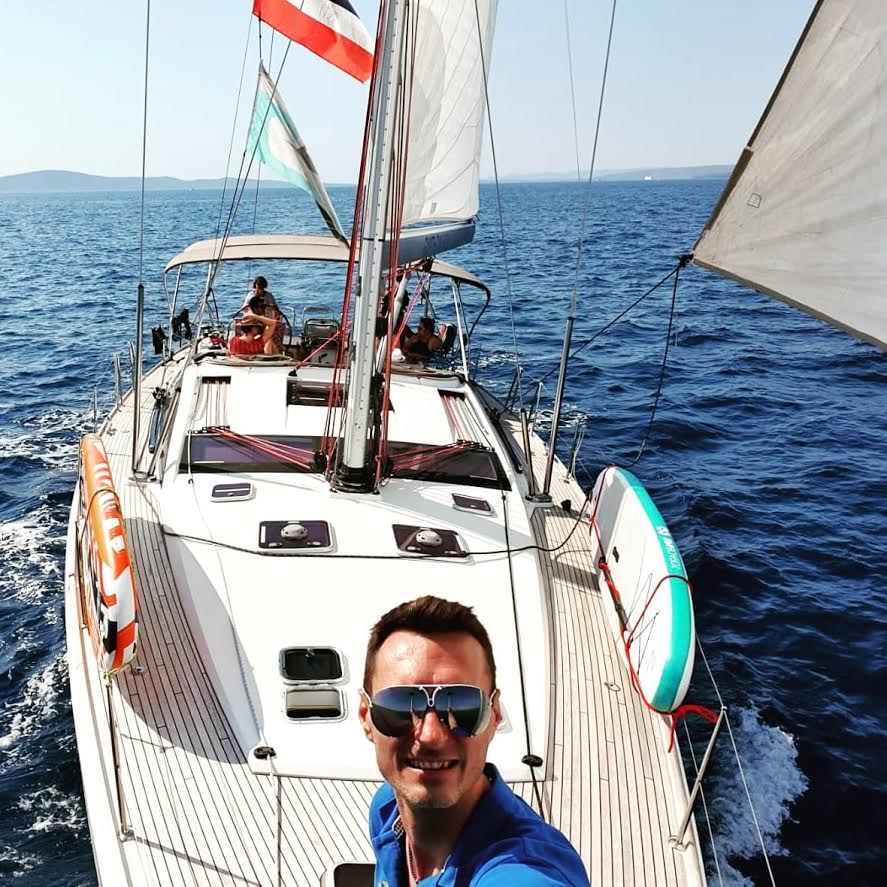
Celebrating New Year’s Eve in the old town of Split in the middle of the day each year, with artificial snow and music and all our friends.

Trips to Dubrovnik have always been a joy. One of the most beautiful coastal roads to get there from Split and once you are there, the Walls are every time very impressive.
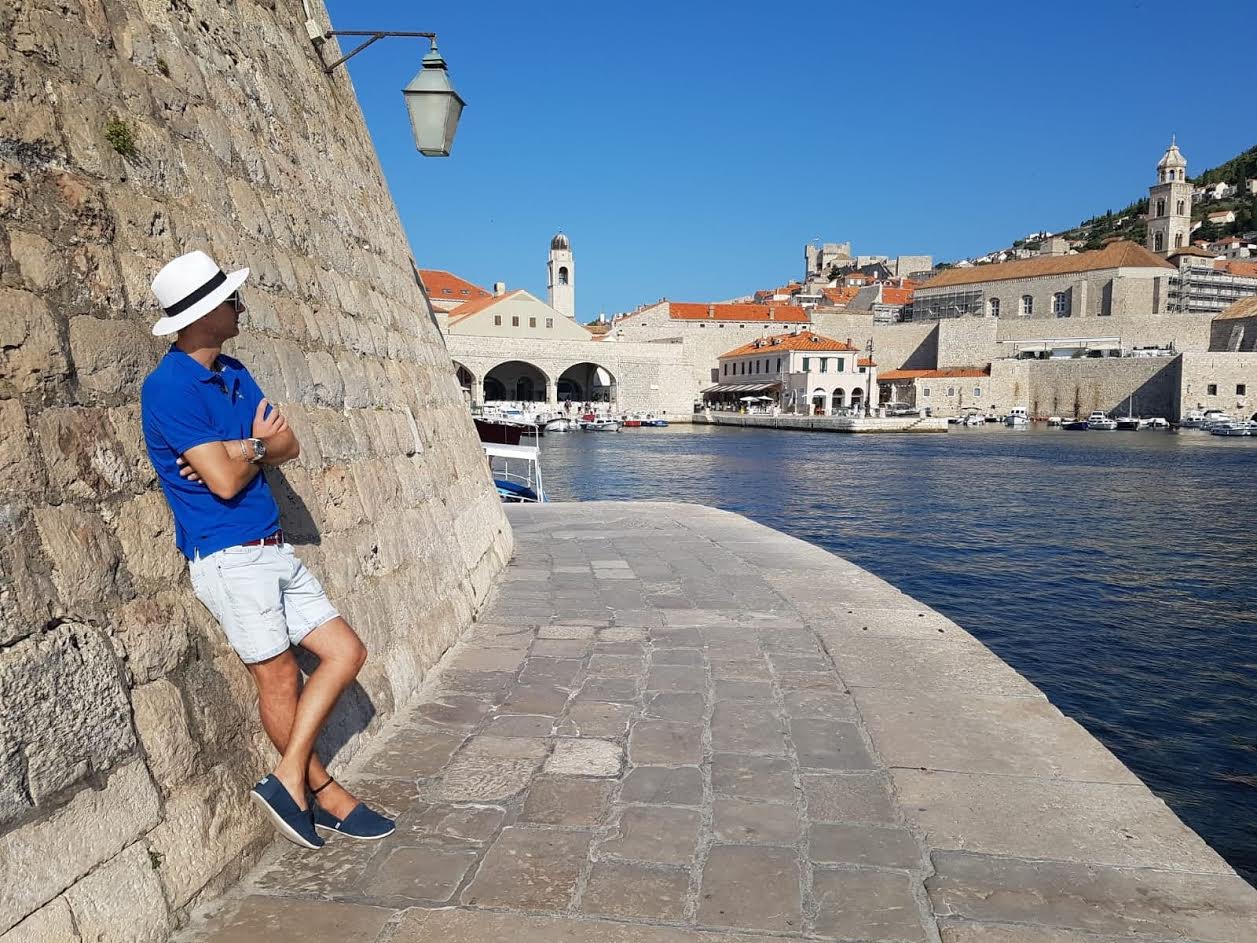
Being able to live in such a beautiful town like Split and walking almost every day in Diocletian’s Palace which is more 1700 years old...wow!
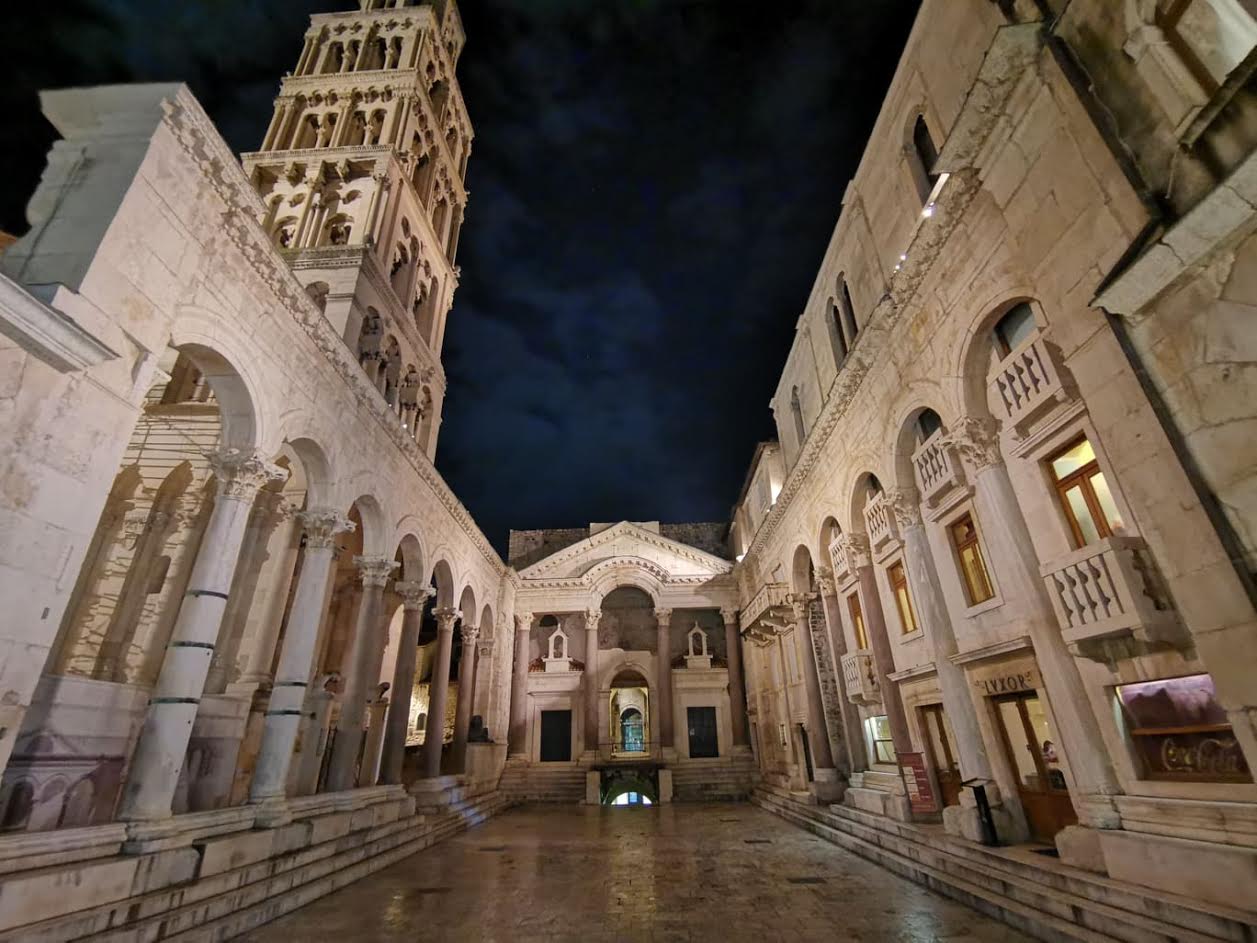
Seeing random people all over wearing the bracelets I make is still bringing me the same joy and excitement although is more than 4 years since this keeps happening. I hope it will never stop �
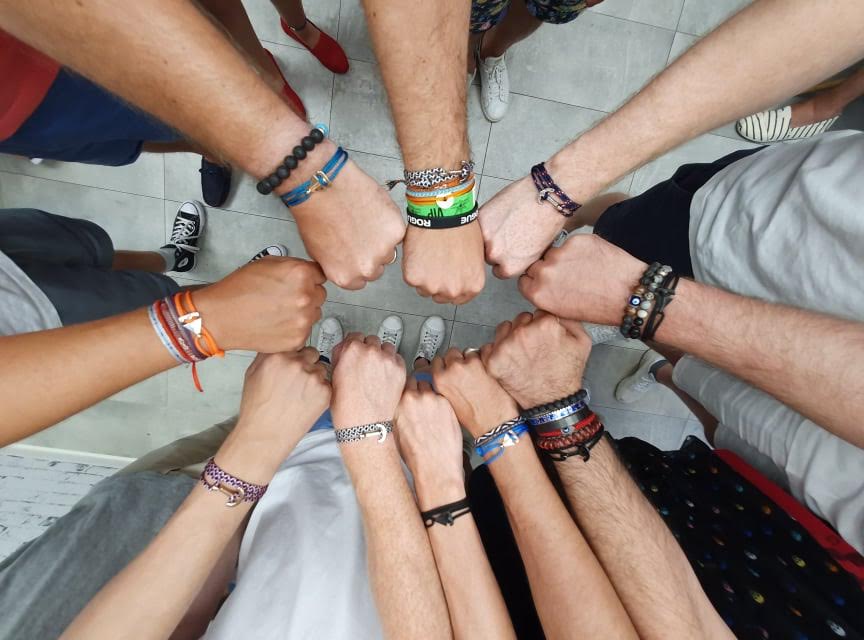
Thanks Ionut - it sounds like a fantastic life, and I am sure you will be back to it very soon when this madness is all over. If you would like to learn more about Ionut's fabulous nautical bracelets, visit his official website.
Are you an expat in Croatia with a little time on your hands and some fabulous memories and experiences to share? If you would like to participate in this series, please contact us at This email address is being protected from spambots. You need JavaScript enabled to view it. Subject Top 10.
To see the other stories in this series, as well as expat self-isolation stories compared to their home countries, and corona voices in the diaspora, visit the dedicated section.
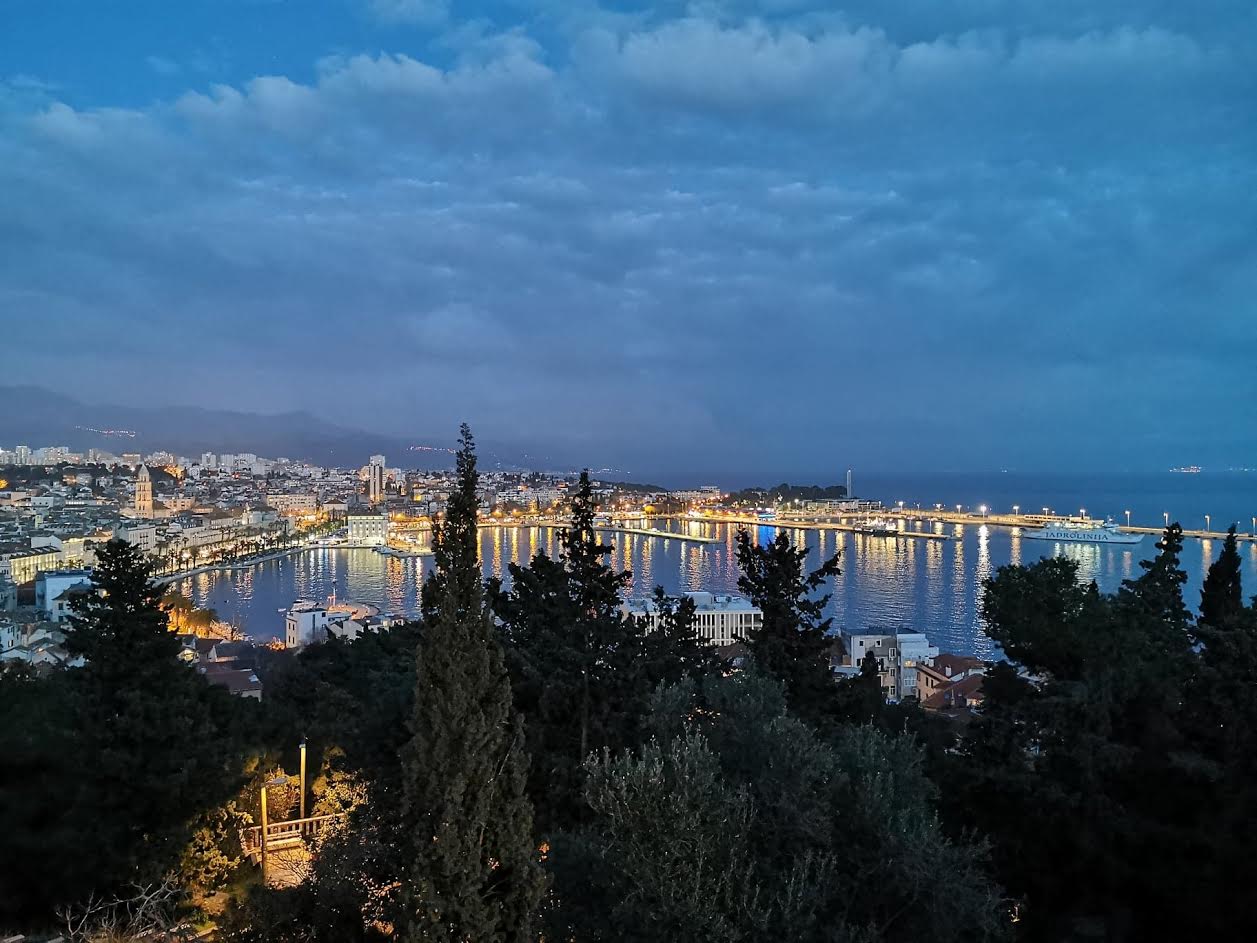
Shipment with 60 Tonnes of Protective Gear Arrives from China
ZAGREB, April 12, 2020 - A direct flight from China on Sunday brought to Zagreb around 60 tonnes of protective equipment for the Croatian health system and other services fighting the coronavirus epidemic, the Croatian government said in a statement.
The shipment, consisting of large quantities of protective masks, overalls, goggles, gloves and contactless thermometers, to be used for patient triage and diagnostics, arrived aboard a cargo plane of the Chinese company SF Airlines.
Attending the arrival of the plane were Health Minister Vili Beroš, Prime Minister Andrej Plenković's chief-of-staff Zvonimir Frka-Petešić, and Chinese Ambassador Erwen Xu.
The shipment was taken over by members of the Civil Protection Directorate who will distribute the equipment across the country.
So far this is the biggest shipment of protective gear from China since the outbreak of COVID-19. Several similar shipments are expected to arrive from China in the coming weeks.
The deliveries secure continued supplies for the Croatian health system and other services during the epidemic, the government said, noting that in procuring Chinese equipment it cooperated with two reputable state-owned companies - MEHECO and Sinopharm.
Today's shipment also includes a valuable donation of protective gear from the Chinese government, which was announced by Prime Minister Li Keqiang in a phone conversation with Prime Minister Plenković two weeks ago, as well as a donation of the Croatian community in China for the Red Cross Croatia, the government said.
More news about relations between Croatia and China can be found in the Politics section.
Interior Minister Slams Attack on Journalist in Split Church
ZAGREB, April 12, 2020 - The head of the national civil protection authority, Interior Minister Davor Božinović, on Sunday condemned in the strongest terms today's assault on a journalist in a church in a Split suburb who, he said, was attacked only for doing her job.
"The reporter was assaulted in a church on the biggest Christian holiday only because she was trying to do her job," he said at a press conference, adding that the police were taking action.
He said that according to reports from local news websites, about 20 believers gathered in the church in Sirobuje despite a ban on such gatherings for epidemiological reasons and that local authorities were notified.
According to those reports, the journalist was pushed away, her mobile phone, on which she was streaming the gathering, was taken and her arm was pinned with the church door.
Božinović said police had also begun a criminal investigation into two men arrested for assaulting and injuring the journalist. They were arrested for using force against a person doing a job of public interest and for damaging another person's item, he added.
The minister said the situation after a previous gathering in the church in question had calmed down and that the police did not know that another Mass would be celebrated at 10 a.m. today.
He said he had asked the head of the Split-Dalmatia County civil protection authority to prevent more gatherings there, and that the police would do their job about today's incident.
Believers started gathering at the church in question also on Palm Sunday but dispersed after the police asked them to return home.
The Sirobuje parish priest, Josip Delaš, told Hina on that occasion that he had asked the faithful to come to Mass because he felt that they could stand two metres apart from each other, as ordered by the national civil protection authority.
The Split-Dalmatia Archdiocese today apologised for the behaviour of Delaš who, despite the ban, celebrated Easter Mass, and distanced itself from his statements and views.
It said in a press release that the attack on the journalist did not contribute to a Christian celebration of Easter and apologised to "everyone who was shocked by Father Josip's conduct."
The journalist who was attacked was Živana Šušak Živković of the Dalmatinski Portal website. An unidentified person hit her on the arm, causing her to drop the mobile on which she was recording Mass. A little over ten believers were in the church and stood apart.
According to journalists who were there, the person who hit Šušak Zivkovic and Delaš hurled insults at them.
Celebrating Mass on Palm Sunday despite the ban on religious gatherings because of COVID-19, Delaš verbally attacked and cursed a police officer in plainclothes, for which he was charged with a misdemeanour.
More news about the Catholic Church in Croatia can be found in the Politics section.
Diary of a Split Tour Guide in the Age of Corona - Part 4
April 12, 2020 - Part 4 of Ivica Profaca's Diary of a Split Tour Guide in the Age of Corona - you can start at the beginning here.
Ever since I started working as a guide, this was going to be my sixth season, I was trying to be as meticulous as possible in running my assignment calendar. Or, in more recent times, calendars. It might be a professional disorder inherited from my daily journalism days, with my addiction to deadlines and article size precision. As soon as I would get a new booking, the whole series of administrating moves begins; write it in the excel table, sorted by dates. Then Google Calendar, which notifies me half an hour before the appointed hour. Then calendars in different online platforms or applications, where I need to delete tours I offer on different dates. For example, if I get a morning assignment from some agency, I block that date for morning tours which I have online, and usually leave those scheduled for afternoons. The last time when I counted, I was maintaining four different calendars, plus excel. I know, there are apps which can do it at once, but I just don't trust them. I'm pretty sure I would end up with double bookings, or miss an important one.
When it comes to payments, I'm even worse. Minutes after I come home after any guiding job, I send an invoice. It's not because I'm especially dedicated, I'm just afraid that if I wait until the next day, not to mention a longer period, I would just forget it. Even with clients who make me send an invoice once a month, I create it at the beginning of the month, and then update after every job. The last day of the month, it's gone.
I described this because for the last two months of Corona, this whole procedure looks like an "undo" command in computer programs. I get a cancellation (because there are no new bookings) for, let's say, some date in May. When I delete it from excel, I enter it in another excel table named Cancellations 2020. Of course I don't really need that, but with self-diagnosed minor OCD of counting, and running statistics it's there, don't ask. You never know, says my little OCD ghost, maybe it will be useful someday. Then I turn to calendars. It's easy to delete it (or change date) in Google Calendar. But, when it comes to online platforms, it gets more demanding. Now I re-schedule all those tours which were deleted or blocked when the original booking arrived, and it takes some time of careful going from one web site to another. Again, I'm completely aware that if, for example, guests cancelled a tour on April 25 due to the COVID-19 situation, no other booking will arrive for that same day. However, it gives the impression that I really am doing something about this season. Completely useless, but I do it. After all, the days are getting longer, and it takes more effort to make them pass while staying home, even with some other jobs I do, like writing or translating.
I learned to act that way when I was forced to start working at home ten years ago, after almost twenty years in different newsrooms. Unfortunately, many people are experiencing it in the Corona Age. You probably know that - how to force yourself to change from pyjamas into barely decent clothes, or comb your hair before work nobody sees you doing it. Well, to play with calendars and jobs which will never come is my way to create a new normality, no matter how abnormal it actually is. It's like that even in more leisure parts of the day, with wine parties over Zoom or some other communication app. Until "all this" stops, and we begin turning back to normal normality. If possible. And it will stop, I'm still optimistic.
Those two excel spreadsheets I run - Bookings 2020 and Cancellations 2020 - go in opposite directions, the first one is still bigger, but the latter is approaching faster then I want. As I said before, bookings were poor anyway, because they stopped sometime in January or early February, but what is really worrying is the steady stream from one spreadsheet to another. The whole of April is now gone, May is emptying, only dates later in that month still stand, but it's hard to count on those bookings will surviving. Later, prospects are a little bit better, but for now it's in the hands of the virus and those trying to stop it.
Some countries have announced the possibility of softening their lockdowns, but it's hard to say how that will work. Maybe more than ever before, countries will depend on each other in the post-Corona economy. That dependence is not whether they will help each other (I hope they will), but how to re-open any economy, if most others are still locked. What's the use if Croatian airports, harbours, borders, museums, bars and restaurants open, if nobody can come? What's the benefit for Croatian tourism (or most of other industries) if Croatia continues doing a good job (or at least it still looks like a good job) in stopping COVID-19, if it still ravages some of our main markets? That's why I believe that the dilemma of whether or not to concentrate on the economy, or on stopping the pandemic is mostly false. There is no economy if the pandemic is alive. When it stops, my calendars await, I'm looking forward to filling them. So many things to do.
We will be following Ivica Profaca's journey through the rocky weeks ahead.
If you find yourself in Split, or are planning a post-corona visit, check out his range of tours on his website - families, look out for the kids tour of Diocletian Palace. It will not only entertain your kids while allowing you to absorb this unique UNESCO World Heritage Site, but it will bring out the inner child in you too. Learn more about it here.
You can read other parts of Ivica's Split Tour Guide in the Age of Corona series here.
(To be continued)
Zagreb Westin Hotel Still Operating, What Are The Special Measures?
The few people who do not live here in Zagreb but who have somehow found themselves travelling through the city during these strange days can count the hotels that remain open on their fingertips. One of them is the popular Zagreb Westin Hotel.
As Dora Koretic/Novac writes on the 12th of April, 2020, there are exactly seven of them, and the largest among them that, despite the coronavirus pandemic, is keeping its doors open to travellers is the aforementioned hotels on the once busy Savska cesta.
Until recently, it was central place for travellers who have somewhat deeper pockets, boasting a bar in which a good part of the Zagreb business scene was arranging various jobs. These days, however, it is eerily quiet, witha reduced workforce twiddling their thumbs and wondering when the epidemic will pass.
Otherwise a member of the Marriott Group, the Zagreb Westin Hotel has remained open as the only facility belonging to a major hotel chain in the Croatian capital city, following the announcement of the closure of hotel facilities, mainly to accommodate guests arriving in Croatia on a mission, such as medical staff, European and international officials, and of course - scientists.
According to the Croatian National Tourist Board (HTZ), there are so few people in Zagreb at the moment who don't actually live here that they would not be able to fill a single floor of the Zagreb Westin Hotel.
As touched on before, at the moment, there are seven open hotels in Zagreb. Although they didn't want to disclose how many guests are currently staying at the Westin, it has since been learned that during the pandemic, the hotel is mostly occupied by individual guests from Croatia and a small number of foreigners, mainly guests from the USA, and special measures have been introduced due to these unprecedented circumstances in accordance with the recommendations of Croatian health institutions, and especially with regard to the restrictions imposed by the Civil Protection Headquarters throughout the country.
Thus, we've learned that all of the Zagreb Westin Hotel's catering facilities are closed, so there is no hotel bar or dining at the hotel restaurant. However, in order for the hotel guests to be able to receive food normally, all meals are prepared in the hotel kitchen and delivered directly to people's rooms.
"We're always focused on the well-being of our guests and employees, even in these unexpected circumstances," a statement from the Zagreb Westin said.
Interestingly, despite the fact that there are no guests, nor is it likely that there will be any soon, they say from the Zagreb Westin Hotel that they didn't significantly change the hotel's pricing policy at the time of the pandemic.
"The overnight rates have not changed significantly due to this new situation. In particular, an overnight stay in a double room from April 8-9 amounts to €91, €122 for bed and breakfast,'' it was revealed.
Maistra hasn't disclosed what additional services are available to guests during these special circumstances, but given the regulations and the special regime, the spa and wellness centre are not currently available at the hotel, and from Maistra they advise that, in accordance with the recommendations of health institutions, they provide guests room service and food delivery services exclusively, with all staff equipped with the proper masks and gloves.
Make sure to follow our dedicated section for more on coronavirus in Croatia.
Marko Rakar: The Post-Coronavirus Future, Part II
From economic measures and FINA's desire to look good to issues of transparency and public spending, Marko Rakar takes a look at the post-coronavirus future for Croatia on the portal mrak.org.
April the 12th, 2020 - If you read the news (at least the international news), you've likely read that Americans reported an additional 6.2 million unemployed people yesterday, which means that about 17 million people have become unemployed in the past three weeks. From that perspective, that's about 10 percent of the total number of employees, and the question is: How come they have such an explosive growth of unemployed people, and there is so much less of that here in Croatia?
The workforce in Croatia (depending on who is counting, and how they're doing that counting) could be between 1.5 and 1.7 million (the criteria for the number of employees is somewhat unclear, as some self-employed activities and OPGs are not always part of these statistics), but let's say that this is about 1.7 million people, which is a mere 1 percent of the American workforce. Similarly, if we were to follow those trends, we would have to register about 170,000 unemployed people, and today we're closer to 17,000 (which can be clearly seen on Index.hr), which is 1/10 of what has happened over in America.
We can certainly find some of the answers to this in the Croatian Government's measures as companies try to look at how permanent this situation might be, or what the overall effects of it will be on their businesses. Another, far greater factor (at least as I see it) are our labour laws which, among other things, provide for notice periods that are very lavish when compared to those in the US. If you rewind the film just a little bit, then you will know that the last day of school was March the 13th, 2020, while quarantine (or lockdown or whatever we like to call this situation) took effect on March the 23rd, 2020. Assuming that the typical ''termination period'' [at work] is one month, it's to be expected that those who have been laid off from the 13th of March onwards, will start going to the Croatian Employment Service only next week, and then we'll start to get a true, clear picture of the state of unemployment in Croatia.
There's no doubt that a huge number of people will end up going or have already gone to the Croatian Employment Service, and since the coronavirus pandemic has caught us right in the middle of Croatia's usual ascending cycle of seasonal employment, it is to be expected that these seasonal workers will not be able to find a job even along the coast, and due to the current, general prohibitions on cross-border movement, they won't be able to find a job abroad either (I wrote about the lack of seasonal workers in agriculture and the effect on the availability and rise in prices of certain agricultural products in the weeks to come earlier).
These seasonal workers are people who have jobs that are their elemental existence and the ongoing coronavirus situation for them is unfortunately not good at all. It's worth remembering that famous thirty percent that makes up the ''grey'' economy, the grey economy is not only made up of hospitality workers doing jobs ''under the table'' or just criminals, but also entire social groups (for example, those who have had their bank accounts blocked), and who have no alternative whatsoever but to work ''on the black''.
In these circumstances of forbidden movement, halting the general economy but also suspending all investments (think of small building projects along the coast, various pieces of construction in continental Croatia, or those assisting "on the black" in various trades and companies) - these people have been left without any, even illegal income, and as such - they will further slip towards poverty.
I think we're collectively underestimating the effects of the coronavirus-induced economic crisis we have run into at full speed. Until now, economic crises (and depressions) were entered slowly and gently, so much so that we did not realise for a long time what had actually happened, and this is a completely different situation now.
The real question is, and many people are discussing it, at what point can we begin to approach anything that resembles our lives before the aforementioned Friday the thirteenth of March, 2020?
If you look at this document (PDF) from the Boston Consulting Group, and if we look at Croatia's neighbouring countries or countries where the spread of coronavirus is somewhat similar to our situation, I think there is no doubt that it will not be possible to start facilitating movement before the second week of June.
It also means that we've not even reached the midpoint of the coronavirus crisis yet, and the question is, what will life look like in two months? ECB President Lagarde said last week that every month, lockdown means 2-3 percent of GDP less, and that figure, in Croatia's specific circumstances, should probably be multiplied by some factor, and all together, that needs to be multiplied to find out what the hole in the state budget will be.
Going back to facilitating isolation measures, we'll be hearing a lot about the examples of Austria, Denmark or the Czech Republic where they decided to start implementing these anti-epidemic measures earlier, but one should be very careful that what happened to Singapore doesn't happen here. Singapore, although it seemed to, didn't manage to address the spread of the coronavirus epidemic. The situation here in Croatia is very similar and most of those infected could be accompanied by a specific "importer" of the virus, but the last few days, and with the breakthrough of the virus into Croatian nursing homes and hospitals, don't really give us much reason for satisfaction.
The situation in Singapore is also interesting because the Croatian authorities, in an attempt to install a mass surveillance system, cite the example of Singapore as a good example where a monitoring application reportedly successfully helped stop the spread of the coronavirus epidemic.
Well, new facts have just arrived and they don't sound so great. The South Korean example also shows signs of "fatigue" and it's worth repeating once again that there's not even an indication of how such applications are actually helping to solve any problems, while violating the right to privacy and freedom from control in the most spectacular way (which I wrote about for Index). I wouldn't want to be petty right now, but all of a sudden we have a whole new set of applications and solutions (for example, there's the one from the civil protection staff for the issuance of passes), so, I'm interested, in the spirit of GDPR, who exactly is leading this, who will have access to the information we need to provide, why, and for how long?
It's clear to me that this is a perceived public good (though if 1/6 of the population has passes, their very existence should be called into question), but there are nevertheless some legal frameworks from which one should not ''jump'' - just like the one that sees that the decisions and the scope of those decisions made by the national [civil protection] headquarters are not within the law. How has that been missed by the powerful lawyers employed by the state and the public sector?
Of course, transparency criteria is also worth mentioning. Namely, a lot of things have been suspended during this time and the urgency of doing this is because of a whole lot of various purchases of any equipment and materials that are necessary in the fight against this coronavirus monster.
Nevertheless, it's necessary that the state, the public sector, and especially these locals (from Milan Bandic onwards), supply the true costs of this disaster to the public, and that they do so in real time. There's no excuse or reason for not doing so. We can start with the koronavirus.hr website itself, and we don't actually know who manages it (I know that sounds irrelevant and petty but…), they're not able to share the data in a machine-readable format one month later (I think this is intentional because they themselves have to have this information but they don't want to share it).
And then there is all the other information that might be interesting, such as the question of testing (why are we testing how much are we testing, as our tactics seem different from many). What are the reasons for this, is there a problem with materials (reagents, I'm not an expert so I don't know...) or is there another reason? Who are we procuring them from, and at what price?
And then, we can move on to the subsidy measures, where I'm forced to agree with the unions and say that they should publicly write which company has received money, how much money, and for what number of employees they money is for (and there is a logic to the request that the companies seeking a ban on dividend payments in the forthcoming period, similar to the way banks did, note that the EU recommended the non-payment of dividends while the Croatian National Bank and HANFA prohibited the payment of dividends - I feel some litigation and damages are on the horizon).
Transparency would help to identify any sort of abuse very quickly, and it would also discourage those who are thinking of resorting to some sort of blackening of public money. Unfortunately, transparency and public insight into the spending of public money isn't exactly popular in our area. It will be interesting to see if these payments are seen on the Ministry of Finance's website (which I conceived a long time ago, although my idea and this realisation don't have much to do with each other, but that's how it is when a bureaucratic mind reads instructions).
What I think we'll see with the anti-coronavirus economic measures of the Croatian Government (and somehow it seems to me that we need to read very carefully and differentiate the expected effects of the measures from the real money being pumped into the system) is that we've done a lot to make sure the measures of economic aid, that would by all criteria need to be really fast, simply aren't.
Lending through HBOR, HAMAG and who knows which other institutions (including banks) involve time-consuming administrative processes that are subject to scrutiny and review and of course decisions. In an environment where there will be thousands or even tens of thousands of such requests, it's difficult to expect the administrative apparatus to be able to keep up, so these measures, if they come and are approved, will come too late for many.
The absolute winner in creating meaningless services is of course FINA (they're also a safe bet in normal circumstances), they created a website where you can sign up for some coronavirus economic measures. They are not an implementing body, they don't decide on anything, and with the information they collect for nothing known to them they do absolutely nothing but pass it on to the bank or institutions mentioned above. Why anyone would do this rather than contact their bank directly is totally unclear. The geniuses at FINA probably realised that they, too, needed to do something, even if it was something completely pointless. The mere impression of them doing something is everything.
On the other hand, the state is digitising ys radically, and now that contact with clients is a potentially dangerous task, suddenly, all at once, everything can be done via the Internet or by email. Let's just hope the team documents what it's doing, because later it won't be possible to unravel what happened once something does come to a halt.
Thought of the day:
When faced with a radical crisis, when the old way of being in the world, of interacting with each other and with the realm of nature doesn’t work anymore, when survival is threatened by seemingly insurmountable problems, an individual life-form — or a species — will either die or become extinct or rise above the limitations of its condition through an evolutionary leap.
This text was written by Marko Rakar, was first published on mrak.org, and was translated from Croatian into English by Lauren Simmonds
For more on coronavirus in Croatia, follow our dedicated section.

